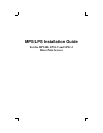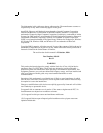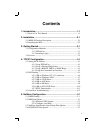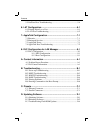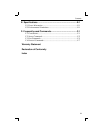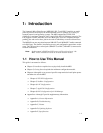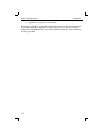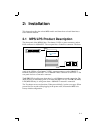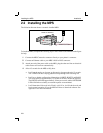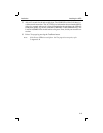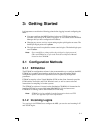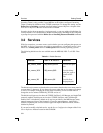
The information in this guide may change without notice. The manufacturer assumes no
responsibility for any errors which may appear in this guide.
AppleTalk, Chooser, and Macintosh are trademarks of Apple Computer Corporation.
LaserJet and Bitronics are trademarks of Hewlett Packard. Centronics is a registered
trademark of Centronics Data Computer Corporation. PostScript is a trademark of Adobe
Systems, Inc. DEC and LAT are trademarks of Digital Equipment Corporation. Ethernet is
a trademark of XEROX Corporation. NetWare is a trademark of Novell Corporation.
UNIX is a registered trademark of The Open Group. Windows for Workgroups, Windows
95, Windows 98, Windows 2000, and Windows NT are trademarks of Microsoft
Corporation.
Copyright 2000, Lantronix. All rights reserved. No part of the contents of this book may be
transmitted or reproduced in any form or by any means without the written permission of
Lantronix. Printed in the United States of America.
The revision date for this manual is 23 October, 2000.
Part Number: 900-191
Rev. B
WARNING
This product has been designed to comply with the limits for a Class A digital device
pursuant to Part 15 of FCC Rules. These limits are designed to provide reasonable
protection against such interference when operating in a commercial environment. This
equipment generates, uses, and can radiate radio frequency energy, and if not installed and
used in accordance with this guide, may cause harmful interference to radio
communications.
Operation of this equipment in a residential area is likely to cause interference in which
case the user, at his or her own expense, will be required to take whatever measures may
be required to correct the interference.
Changes or modifications to this device not explicitly approved by Lantronix will void the
user’s authority to operate this device.
Cet appareil doit se soumettre avec la section 15 des statuts et règlements de FCC. Le
fonctionnement est subjecté aux conditions suivantes:
(1) Cet appareil ne doit pas causer une interférence malfaisante.
(2) Cet appareil doît accepter n'importé quelle interférence reìue qui peut causer une
opération indésirable.



